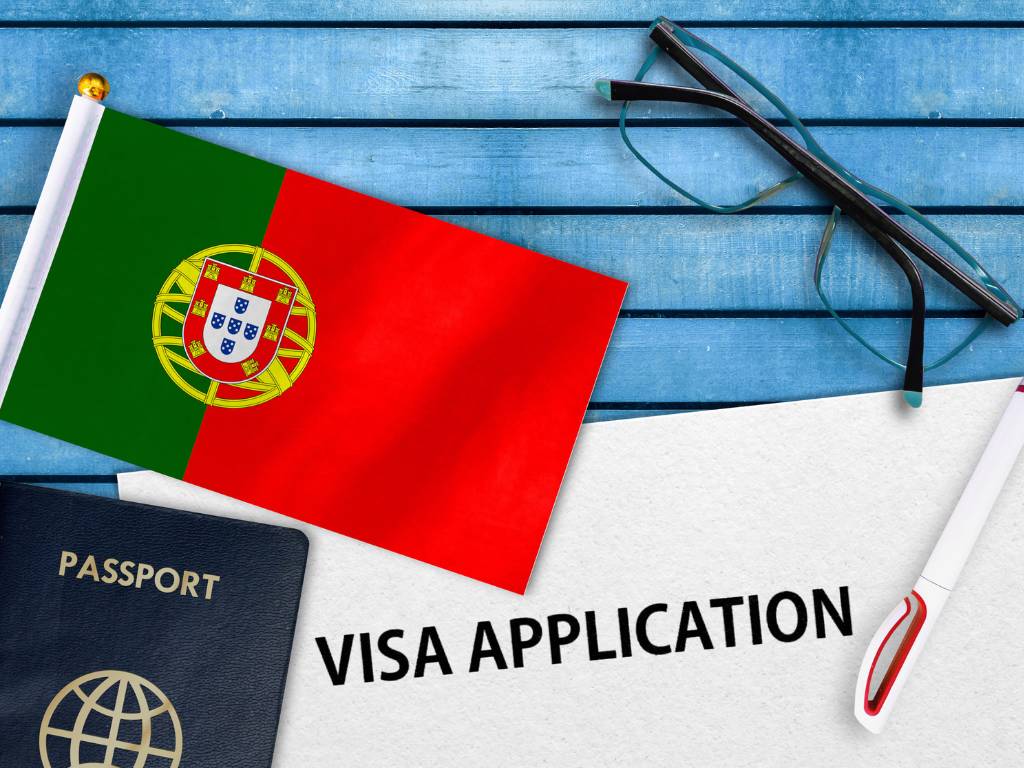Apply for a work visa and work permit in Portugal
To work in Portugal, you’ll need a job offer, a work permit, and a work visa. Find out how to apply for a work visa in Portugal.
Greta
Non-European citizens are allowed to work in Portugal with a valid work visa and residence permit. You can either apply for a job-seeker visa to come to Portugal and find a job, or you’ll need to:
- Get a work contract from a Portuguese employer.
- Wait for your employer to apply for a work permit.
- Apply for a work visa at your local embassy after the work permit is approved.
To help you navigate this process, this guide will explain the process of getting a work permit and a work visa, the documents you need, and the types of work visas available.
Do I need a visa to work in Portugal?
If you’re a Non-European citizen, you’ll need to apply for a work visa to legally work in Portugal. Once you travel to Portugal with your work visa, you must apply for a residence permit within 4 months of your arrival.
If you’re from an EU/EEA/Swiss country, and you want to live in Portugal for more than 3 months, you’ll need to obtain a Residence Certificate (Certificado de Registo) from the town hall.
Is it hard to get a Portuguese work visa?
Getting a work visa in Portugal can be challenging as it requires a signed employment contract. Employers in Portugal can only offer a contract to non-EU citizens if the role could not be filled by an EU/EEA/Swiss citizen within 30 days.
Moreover, your new employer needs to get approval from Portugal's Labour Authority (IEFP) and Immigration (SEF) before you can apply for a work visa.
Types of work visas in Portugal
The type of visa you’ll need to apply for will depend on the nature of your job and experience. Here’re the most common work visas available:
-
Portugal skilled worker visa: This is the standard work visa, which requires you to have a work contract for at least 1 year.
-
Highly-qualified worker visa: Designed for those with high qualifications and skills, such as a scientist, researchers, medical professionals, and engineers. The key requirements include having a 1-year work contract, a 3-year degree from a recognised university or 5 years of professional experience, and a gross salary of at least 1.5 times the national average gross salary of €1,752.
-
Tech visa: For those highly qualified workers who have a job offer from a certified company in the area of technology and innovation. Some main requirements include a contract of 12 months, at least 5 years of relevant work experience, and a salary that is 2.5 times the Index of social support (€480.43 in 2023).
-
EU Blue Card visa: Specifically designed for highly skilled workers from Non-EU countries. The main requirements include a higher education degree, a work contract of at least 1 year, and a gross salary of at least 1.5 times the national average gross.

Portugal work visa requirements
Besides meeting the criteria mentioned above, these documents are necessary for every work visa application in Portugal.
- A completed visa application form.
- A valid passport.
- 2 passport-sized photographs.
- Your employment contract.
- Proof that you have sufficient funds to support yourself during your stay in Portugal.
- Your criminal record certificate.
- Proof of health insurance with coverage in Portugal.
- Proof of accommodation in Portugal, such as a rental contract.
Find houses for rent in Lisbon and Porto on HousingAnywhere, a platform made specifically to help tenants book housing safely from abroad.
How to apply for a Portuguese work visa?

There’re 3 main steps to getting a work visa in Portugal:
Step 1: Land a job in Portugal
Before you can apply for a Portuguese work visa, you’ll need to find a job and get a signed work contract. To find a job in Portugal, you can look to sites such as LinkedIn or The Portuguese Public Employment Service.
Step 2: Portugal work permit application
Once you’ve signed the work contract, your employer needs to apply for a work permit (Autorização de Trabalho) on your behalf. A Portugal work permit application needs to show:
- The employment contract, with details such as your tasks and the company name and address.
- The company’s tax statements.
- Proof that the job was unfilled for at least 30 days before offering the job to you, a non-EU citizen.
- The company’s social security number.
- Your details, such as passport copy and proof of accommodation. Check with your employer which documents you need.
Step 3: Apply for the Portugal job visa
Once your employer has received the approval for the work permit, you can move to the final step. To apply for a work visa at your local Portugal embassy or consulate:
- Fill out the visa application form and pay the required fee.
- Collect all the necessary documents, such as passport, employment contract, proof of healthcare, etc.
- Make an appointment at your local Portugal consulate or embassy.
- Attend the visa interview with your completed application form and supporting documents.
How long does it take to get a work visa in Portugal?
The processing time for your work visa application is between 2–3 months. The processing time for a Portugal work permit is 60 days.
Portugal work visa fees
The cost of applying for a work visa in Portugal is €90. This is the standard fee for any residence visa, which is issued for stays longer than 3 months.
Final step: getting a residence permit for work
Once you enter Portugal with your work visa, you’ll have to apply for a residence permit at SEF within 4 months. The residence permit for work will allow you to legally work in Portugal after your work visa expires.
The application fee for a residence permit is €83, and the cost to receive the residence permit is €72.
Residence permits are typically valid for 1 year and can be renewed for as long as your contract remains valid. If you change jobs, you’ll need to apply for a new residence permit as your permit is tied to your employer.
Besides applying for a residence permit for work, you also need to apply for a tax number and register with social security. To apply for a tax number, you’ll need to open a bank account in Portugal.
Portugal’s job seeker visa
Portugal’s job seeker visa offers you the chance to visit Portugal and search for employment without requiring a job offer beforehand. This visa is open to applicants from around the world.
With the Portugal job seeker visa, you can stay in Portugal for an initial period of 120 days. You can renew the job seeker visa for an additional 60 days if needed. If you’ve secured a job and your employer has applied for a work permit before the visa expires, you can remain in Portugal. Otherwise, you’ll have to leave Portugal and apply for jobs from abroad.
It's important to note that a Portugal job seeker visa allows you to enter Portugal only once.
Requirements to apply:
- Fill out and sign the national visa application form.
- Make sure your passport is valid for at least 3 months.
- Provide 2 passport-sized photos taken recently.
- Obtain a criminal record certificate from your country of nationality or residence.
- Show proof of valid travel insurance.
- Include a copy of your return ticket.
- Provide evidence of financial resources equivalent to at least 3 times Portugal's minimum monthly salary (€820).
The application fee: €75
Now that you know the requirements and guidelines for applying for a work visa in Portugal, you can confidently navigate the process and begin an exciting professional journey in some of Portugal's most vibrant cities.
Want to move to Lisbon? Start your search on time and discover apartments for rent in Lisbon!
Please reach out to content@housinganywhere.com if you have any suggestions or inquiries about the content on this page.
In this article
Moving to Portugal?
Find accommodation in cities across Portugal. Book the place of your dreams from verified landlords even before relocating!
Start my Search